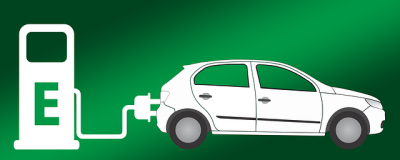Controlling the autonomy of an electric car is not easy, and that generates some anxiety in drivers, because they have doubts about whether they will be able to reach their destination. The idea of this reflection came to me after speaking with the owner of an electric car, who stopped to recharge his car about 70 km from Madrid because he was not sure if he would reach his destination.
The autonomy of a car depends a lot on the conditions of the road, the traffic, the speed, etc… For example, a car consumes more in curves due to the increased resistance of the wheels when rubbing against the asphalt. More energy is also consumed if the asphalt is uneven, and depending on the weather and temperature, traffic congestion, etc….
In short, accurately knowing the autonomy of an electric car requires complex calculations, and today the vehicles give very approximate and imprecise information, and just in case, drivers cover all possibilities and go to recharge earlier than necessary.
And if this happens with cars, imagine what happens with electric buses. The same but amplified, because many people travel on a bus and the service cannot be stopped on the road.
Every day more and more electric buses are used in many cities around the world, but the Netherlands is at the forefront of this trend. That is where more electric buses are being sold (in proportion), exceeding 70% of new sales. And calculating the autonomy of their services is a serious problem in order to take advantage of the resources they have.

And in the Netherlands there are people (such as Camiel Beckers) from the University of Eindhoven working on generating control systems for a vehicle's battery, to precisely determine its autonomy. To do this, they use Artificial Intelligence tools to obtain vehicle behavior models, and improve them with data obtained from reality.
Over time, they obtain more data, which is incorporated into the system and makes it more accurate. They are working with the buses of the city of Eindhoven, and they verify that the system is becoming more intelligent and is better at predicting the autonomy of the buses, having reached an error of less than 10%.
I think it is important work and they should be recognized for it, because in addition to buses, they may soon help electric cars, and one day electric trucks.
Drivers of electric vehicles need to know with some precision the autonomy of their car to know whether or not it will reach its destination, and to know it sufficiently in advance to decide to recharge it on time.
In theory, knowing the point of origin and destination, with the estimation of traffic, the expected weather, etc... before leaving on a trip, it is possible to make a simulation of whether you need to recharge along the way, or not. And by capturing the data of what happened on the trip, the system becomes more precise and helps us better.
We have yet to see many improvements on all fronts.


Excelente artículo, muy bien detallado y plasmado alguna de las realidades de los vehículos eléctricos, sin embargo, la tecnología en esto vehículo va cada vez a más y los nuevos modelos son más precisos a la hora de indicar la autonomía real que tiene el vehículo. ¡Gracias!
Estimado, si te agrada mi Blog https://desdelaterrazadeamador.com
Te agradecería que lo compartieses con tus amigos y contactos en las redes sociales.
Coloco varias entradas cada semana, y hago un informe rápido en mi cuenta de Twitter @edurneamaya
Gracias y un saludo